REFORM ’25
WORKING TOGETHER TO CREATE SAFE, POSITIVE AND FAIR EXPERIENCES FOR ALL IN GYMNASTICS




OUR COMMITMENT AND ACTION TO DELIVER ON THE WHYTE REVIEW AND THE WIDER REFORM OF GYMNASTICS



















We, the British Gymnastics Board, want to reiterate our heartfelt apology to every gymnast who has suffered and fully commit to not only providing them with the support they need, but to changing gymnastics for the better so that gymnast wellbeing and welfare is right at the centre of the culture of our sport.

We are grateful to Anne Whyte and her team for delivering a comprehensive report and clear recommendations, and to everyone who contributed to the Review. The Board commits fully to delivering on all the recommendations, restoring trust between British Gymnastics and gymnasts, parents, coaches, volunteers, and our wider community, and transforming our sport for the better.
We have been listening and learning from many in the sport and will continue to do so. It is clear there is a real desire in our member clubs and across the gymnastics community to reform the sport for the good of all involved. We also know that there is no quick fix. There is a need for deep systemic change, and it is vital that this involves everyone in the sport. As part of that we need to change our own approach, and we know that beyond our obligation as a Board to ensure the necessary financial stewardship is in place, we have a responsibility to also prioritise cultural stewardship.
We must ensure change is seen, understood, supported, and actioned by all involved in gymnastics. We know there are brilliant clubs and coaches out there doing the right things, but there is also poor practice that we cannot accept in our sport.
We are committed to playing our part in creating a better future for gymnastics and all who are involved in it. We have been working with our members and stakeholders to shape the long-term future
of gymnastics in the UK. We appreciate the support of our members and wider sporting community – including UK Sport, Sport England, British Elite Athletes Association (formerly British Athletes Commission), English Institute of Sport, CIMSPA, and UK Coaching – and are committed to working with you all. Real progress is impossible without everyone in gymnastics embracing change and committing to do what is required together, even when difficult.
Where necessary reforms are not solely within our remit, British Gymnastics commits to take a leading role in advocating the necessary changes and doing everything we can to facilitate and support change to make sport safer. Additionally, we commit to identifying and sharing the lessons we learn with other sports and playing our part in helping create safe sport throughout the UK.

We are putting into place a comprehensive programme of transformational activity over the next two years up to 2025 called ‘Reform ’25’. The Whyte Review recommendations alone will not deliver the full reform the sport needs. That is why we have set out a wide range of actions which include and go beyond the 17 Whyte Review recommendations (Appendix 1) to ensure we look at all aspects of the sport to create meaningful change.
These changes have already begun, including several new appointments in key positions across the organisation and new Representative and Advisory Groups to ensure we are listening directly to gymnasts, coaches, and clubs at the heart of our sport. We have also increased our focus on welfare and safeguarding and created a full time National Welfare Officer post to ensure we look beyond simply the process of safeguarding. This, though, is only the start. There is much more to do, and this document sets out what we will be doing to reform our sport and create safe, positive and fair experiences for all in gymnastics.
WE ARE COMMITTED TO PLAYING OUR PART IN CREATING A BETTER FUTURE FOR GYMNASTICS AND ALL WHO ARE INVOLVED IN IT.Signed by all the Board Members of British Gymnastics Mike Darcey Helen Phillips MBE Joanna Madyarchyk Alastair Marks Howard Marsh Adam Pengilly Tracey Singlehurst-Ward Gary Tolometti Danusia Francis-Reid Sarah Powell Andy Tombs Gareth Harvey
The British Gymnastics Board has overall responsibility for ensuring the Whyte Review recommendations are delivered and that the necessary reforms are in place to sustain them. As Anne Whyte noted in her report, sport should be a positive and safe experience, regardless of age and ability. Through the delivery of actions outlined in this plan, our shared purpose is to ensure that gymnastics provides a safe, positive and fair experience for all by the year 2025.
The Board has already established three new Representative and Advisory Groups – Gymnast, Coach and Club – which will play a vital role in informing and supporting the work of Reform ’25. They will provide their lived experience, insight and challenges to inform the ongoing implementation of the actions and response to the Whyte Review. In addition, the Board has set up a specific sub-committee (Oversight Board) with key relevant members of the Board and an Independent Advisor Dr Catherine Bishop, an Olympic rower, former diplomat and leadership and culture coach, to provide additional scrutiny and independent perspective on how we implement the reforms.
The figure below shows how inputs from across the gymnastics community will feed into Reform ’25 decision making, to ensure everyone has a say and a level of responsibility in driving positive change. Regular reporting and progress updates will be provided to the Board and published on our dedicated Reform ’25 page on our website, where all our information relating to the Whyte Review is available.
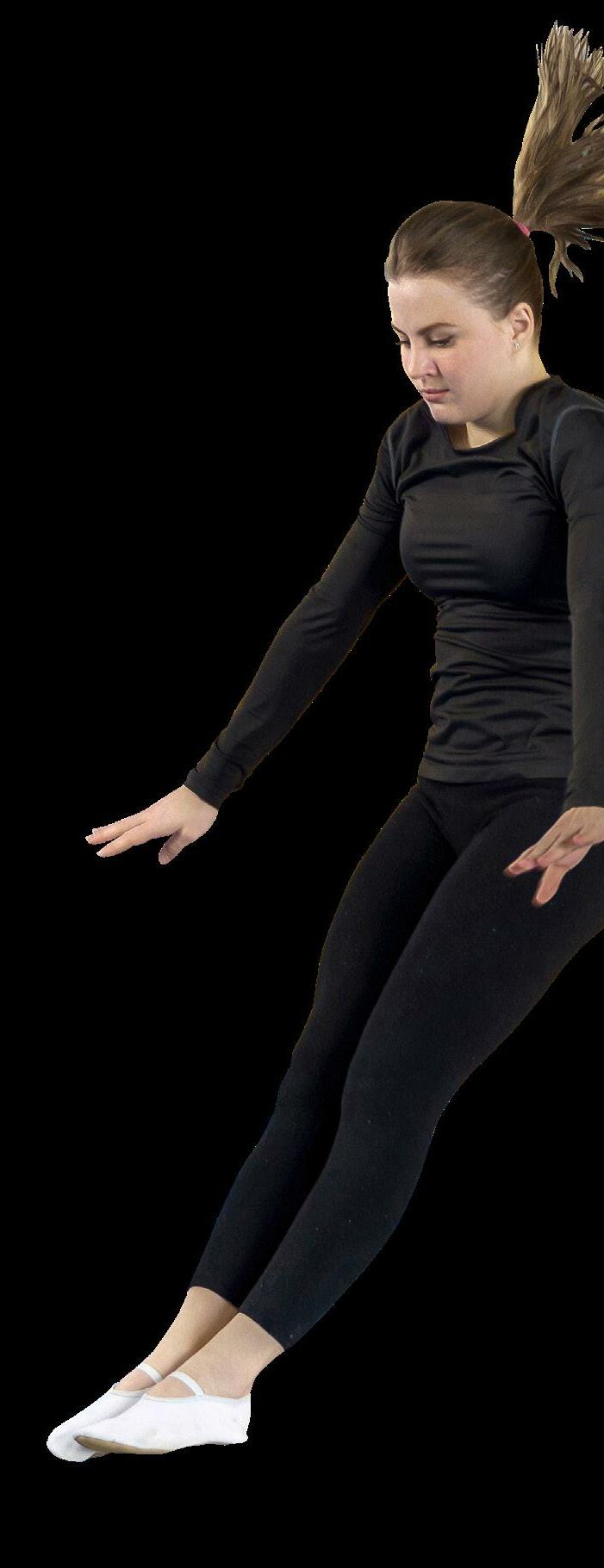
The Reform ’25 delivery will be led by an Executive Implementation Team consisting of Directors across the organisation, who will oversee, facilitate, and drive forward the actions identified across the four interconnected focus areas of: culture & strategy, welfare, safeguarding & complaints, education & development, and performance.
THROUGH THE DELIVERY OF ACTIONS OUTLINED IN THIS PLAN, OUR SHARED PURPOSE IS TO ENSURE THAT GYMNASTICS PROVIDES A SAFE, POSITIVE AND FAIR EXPERIENCE FOR ALL BY THE YEAR 2025.* NED = Non-Executive Director
The Whyte Review recognised that gymnastics has provided positive, healthy and rewarding experiences for the vast majority of its participants and that most gymnastics coaches are diligent, caring and responsible. For that not to be the case for everyone however is unacceptable.
For our sport to positively impact the lives of all who experience it, gymnastics must change – and we all need to play our part.
As the National Governing Body, British Gymnastics must change, in our role and our approach. As custodian of the sport, we recognise that we must work closely with others to make that happen.
Many in gymnastics are rightly angry at what has happened. This includes gymnasts and coaches who feel their sport has been damaged by our failing and the poor practice of others.
We know we got things wrong and are taking the time to understand how problematic cultures had been created and maintained and why they were not identified sooner. Our aim is to prevent any recurrence of unsafe experiences to regain everyone’s trust in gymnastics and British Gymnastics.
The Whyte Review is not the change itself; it is only the call for change. It is now up to us to work together in new and better ways to galvanise the hundreds of thousands of people involved in gymnastics right across the sport – including gymnasts, parents, coaches, clubs, teachers, technical officials, and volunteers – with a renewed shared purpose to create safe, positive, and fair experiences for all who are involved in gymnastics. This shared purpose itself is something that has been developed in collaboration with the gymnastics community.
At British Gymnastics, we recognise that we cannot and should not solely police or use compliance to deliver the reform needed. We must work hard to build and rebuild relationships, to shift mindsets and develop different behaviours throughout the sport to keep everyone safe and bring about deep cultural change.
We will need to collaborate with clubs, coaches, and staff more regularly and openly to understand and communicate what is required on the ground, working together to co-create and share ownership of the new standards for our sport. British Gymnastics aims to be a regular port of call and support, ready to intervene swiftly where necessary.
Gymnastics reform must extend beyond British Gymnastics. The Whyte Review is a catalyst for change that will help us look at how we can improve gymnastics in the UK across our membership and delivery partners, but also share best practice and new ideas across the sports sector more widely and internationally.
We have a vital role in convening and facilitating discussions with other international gymnastics federations, sharing insight and knowledge of how we are all tackling and implementing the necessary reforms and how our learning can be applied more widely. As part of this, we will host the first International Gymnastics Safe Sport Symposium in November 2022, supported by the FIG and UK Sport.
AS THE NATIONAL GOVERNING BODY, BRITISH GYMNASTICS MUST CHANGE, IN OUR ROLE AND OUR APPROACH.
Our approach will be one of commitment, care and constant learning – a commitment to deliver not only the recommendations but the reforms necessary for meaningful change; care for those who have been affected by our failings and care for all who take part in gymnastics; and a constant learning mindset to ensure that this is not a tick box exercise but a genuine commitment to improve standards and enable safe, positive and fair experiences.
We will face many barriers, some already known, some still to discover as we implement these reforms. This highlights the importance of a collaborative and open process as we make these changes, so that we can continue to learn from each other about how to create the best gymnastics environments at all levels from recreational settings to performance training centres.
We recognise this work is multi-layered and complex in nature and will take time. Therefore, this action plan will be version 1 of this journey of transformation. We will publish updated versions at the agreed reporting points, as we learn and see the impact of our actions.
We will be guided by five principles:
Our actions will be delivered based on a new, strong set of values and beliefs developed with input from the gymnastics community.
Our actions will take a caring, more personal approach, putting people first in everything we do.
Our approach will be proactive in order to prevent the problems, rather than seeking to react to issues when they occur.
We will no longer be insular but instead be open, collaborative and consultative - acknowledging we are stronger together and seeking to work with others to develop and deliver collective action.
Our actions won’t be driven by quick fixes - we will seek actions that lead to meaningful and lasting change.
OUR APPROACH WILL BE ONE OF COMMITMENT, CARE AND CONSTANT LEARNING.
The 40 actions set out on the following pages across these four focus areas have been developed in collaboration with the gymnastics community and external expertise to drive the wider reform of gymnastics. They encompass within them work to deliver each of the 17 recommendations of the Whyte Review as well as going beyond these.
British Gymnastics is committed to creating a better future for gymnastics, and we are reviewing our wider business plans and priorities to repurpose and reallocate our resources, stopping other activity as necessary so we can give this the focus it needs. There are certain areas where we need to take more time to fully explore and consider what action is required in order to create the systemic change we want to see. This approach is fully endorsed by UK Sport and Sport England, and we will continue to work with them as we shape these areas.
Our work will be delivered over four phases. For some actions, we do not yet have all the answers, and so we will be working collaboratively with the gymnastics community, experts and beyond to scope how we can best achieve these reforms with lasting positive impact.
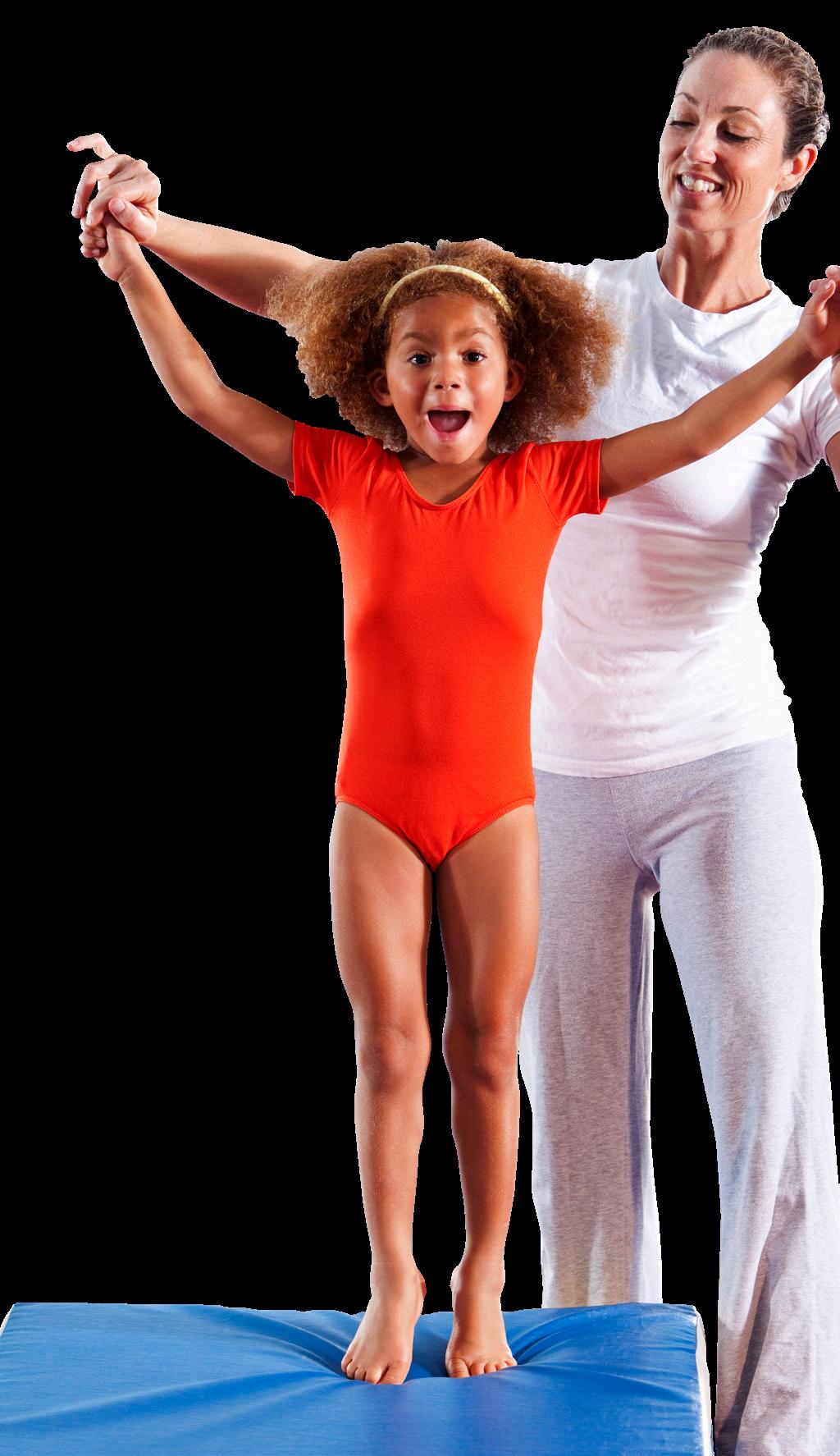
We have indicated next to each action which Whyte Review recommendation it covers and in which of the four phases it will begin. We have also indicated where our work will be about scoping or implementing. Some actions have already been completed – where this is the case and where we currently anticipate completing future actions, this is also shown.
British Gymnastics and the Home Nations will have a united approach to gymnastics across the UK, working to one clear vision based on shared values and beliefs. We will work with our gymnastics community from gymnasts, parents, coaches, clubs, volunteers and others, to create clubs and training centres where all in gymnastics can thrive, knowing they will have a safe, positive and fair experience.
We know that means big changes for us as a governing body: firstly, providing more effective governance for our sport, ensuring welfare and safeguarding are paramount across the UK; secondly reforming our education and development work; and thirdly working more in partnership with clubs and gymnastics groups to transform our sport for the better.
More than anything, we want to ensure that gymnast emotional, mental, and physical wellbeing and welfare is at the centre of the culture of our sport.
• A sport where everyone is supported, and the welfare of gymnasts is paramount
• A clear and united vision, strategy and culture underpinned by collective values and beliefs
• A shift in British Gymnastics’ approach to develop and strengthen relationships across the gymnastics community
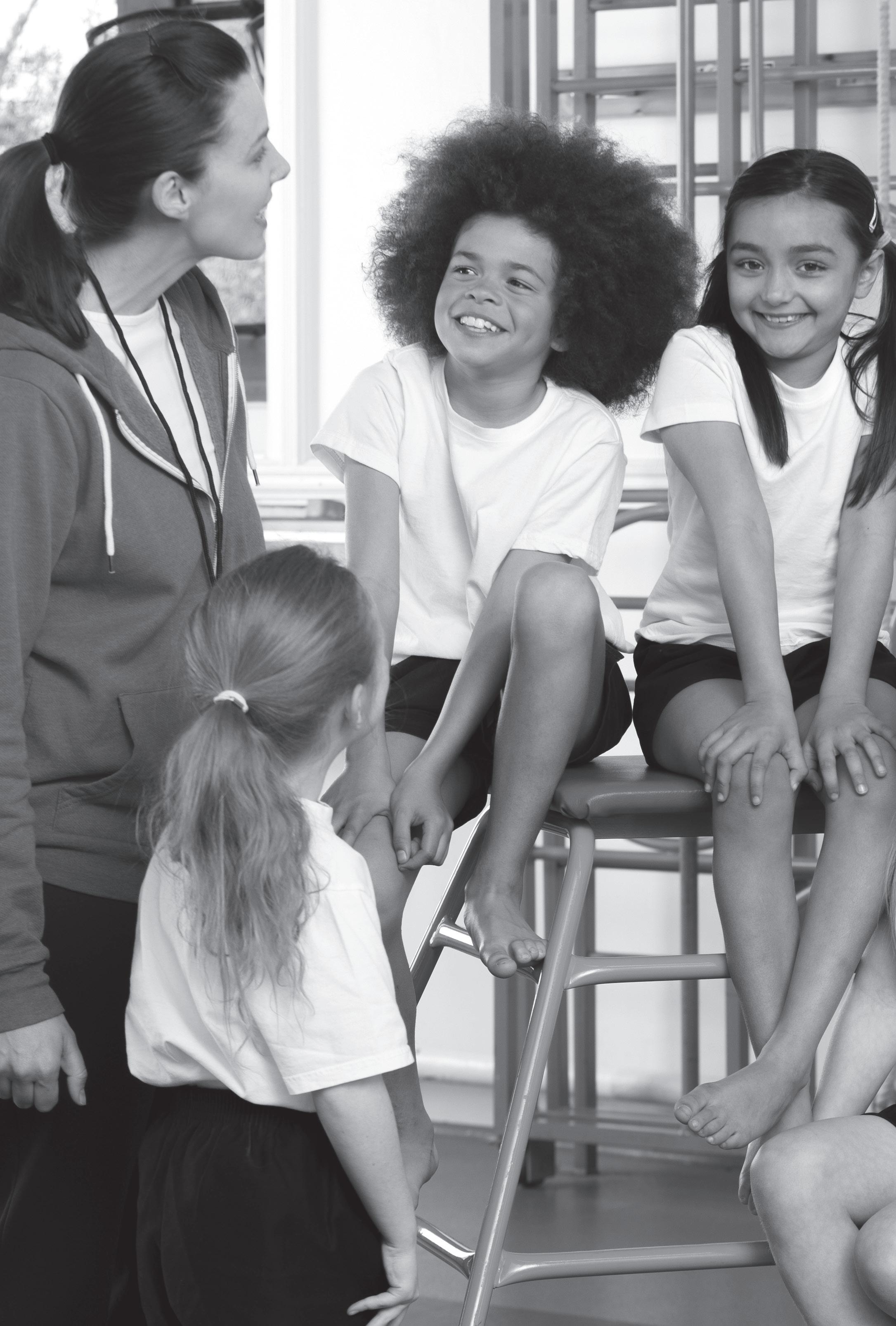
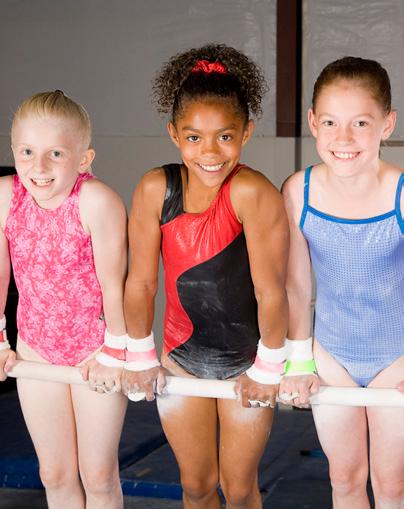
• More support and development opportunities for coaches, officials and volunteers
• Greater integration and collaborative working in British Gymnastics to improve our delivery and impact
• British Gymnastics taking a lead role in sharing knowledge to feed into wider sector changes with other sport National Governing Bodies, UK Sport, Sport England, FIG and Government to ensure sport is safer for all
Work with the Home Nations and the gymnastics community to develop and put in place a clear vision and strategy for our sport, underpinned by a set of shared values and beliefs, to create a united approach to gymnastics across the UK.
Provide appropriate governance for our sport by reshaping the Board to ensure we have the necessary skills and experience to guide what we do, including experience in safeguarding and performance gymnastics.
Ensure we are fit for the future by redesigning the organisation, putting a greater emphasis on working together with our gymnastics community, and building trusted and valued partnerships across and beyond our sport.
Ensure we as British Gymnastics embody the culture that we want to see across our sport by appointing people within the organisation to lead by example, role model our values, reinforce behaviours and guide others in a supportive way, so that we continue to embed, evolve and shape a safe, positive and fair culture in everything we do.
Listen more to the gymnasts, coaches, and clubs at the heart of our sport through three new Representative and Advisory Groups – Gymnast, Coach and Club – supporting, developing and empowering them to advise the Board and Executive team on key policies and programmes to ensure our thinking and action is fully informed, relevant and connected to all involved.
Provide additional scrutiny and focus on all safeguarding and welfare areas by putting in place a Safeguarding Sub-committee of the Board.
Enhance our Strategic Leadership Team with the appointment of a Director for Education and Workforce Development and Director for Communications and Stakeholder Engagement.
Take a leading role in driving forward wider sector changes by working with other National Governing Bodies of sport, international federations and the UK Government to support cross sector reforms to ensure safe sport for all.
Ensure the changes we make have the desired impact by undertaking regular reviews of this Reform ’25 action plan, evolving it as necessary, and update our gymnastics community and the wider sector on progress made, with updated versions published as we review and learn from the impact of our actions.
Recommendation 16
Recommendation 16
Recommendation 16
Recommendation 2
Recommendation 17
16
Recommendation
Recommendation
Recommendation
The care of gymnasts is always paramount. British Gymnastics with our clubs, partners and stakeholders must ensure the welfare and care of all involved in our sport. For those that have suffered abuse, we will work with and listen to gymnasts to understand how we can best continue to support them, for instance through a restorative programme or one-to-one support. Beyond this we must prioritise and transform the quality of welfare and safeguarding across everything we do and everywhere gymnastics is enjoyed, from the community hall, leisure centre and club, right through to the National Training Centre at Lilleshall.
We will ensure the same consideration is given to emotional and physical abuse as to sexual abuse. We will work with gymnasts, parents, coaches, clubs, and volunteers, to ensure the community understands how they can raise any concerns, and feel confident that they will be listened to and these concerns will be acted upon, swiftly and robustly, so that together we can create a better experience for all.
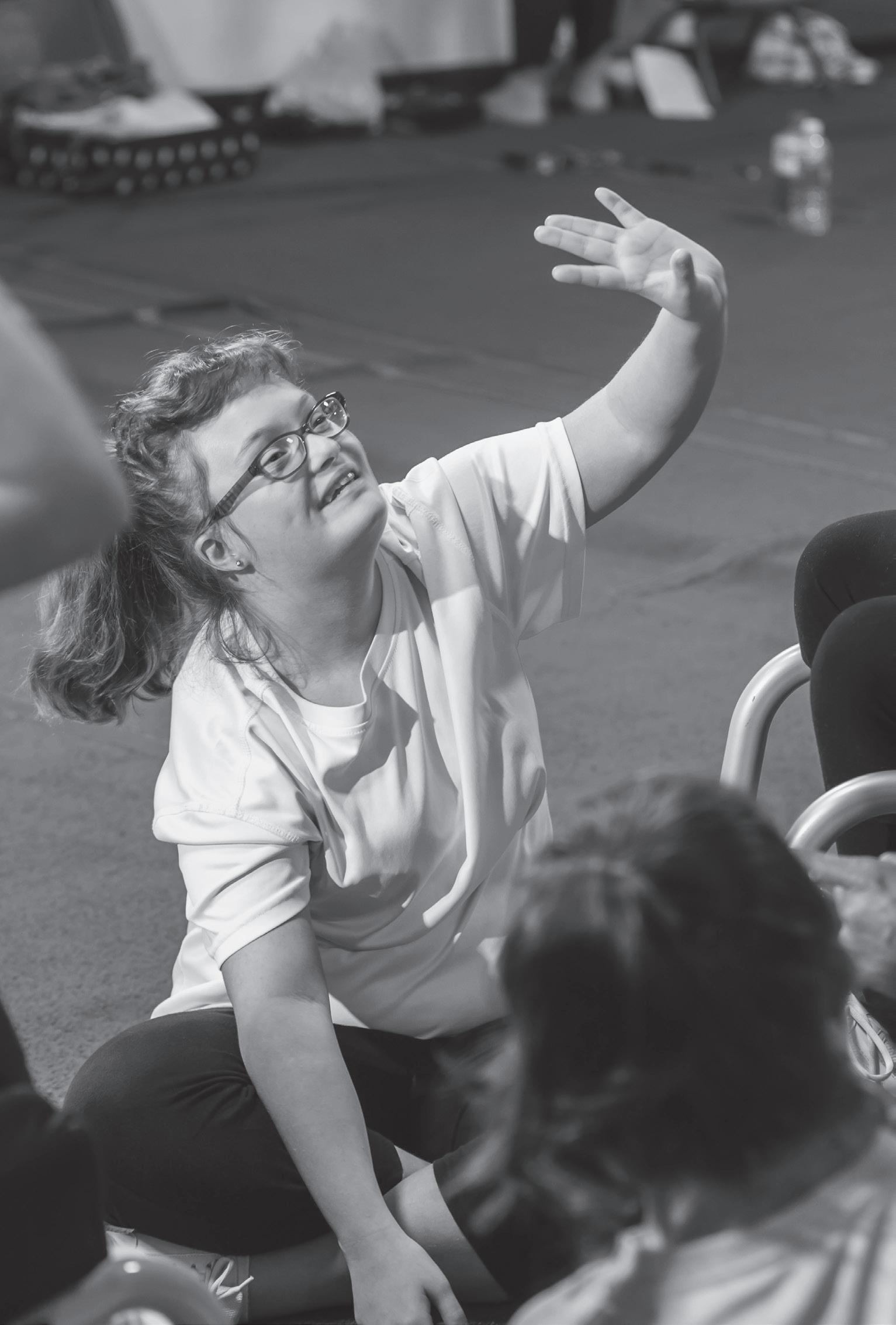
• A zero tolerance of abuse – whether that be emotional, physical or sexual
• The reporting of banned coaches on our website
• Gymnastics environments where everyone cares about and prioritises positive and safe experiences for all
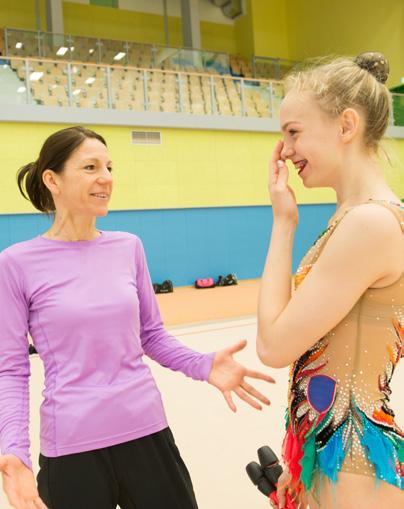
• Greater understanding and prioritisation across the sport of the requirements and responsibilities for safe sport
• An improved complaints process and experience, with increased communication and welfare support for those involved
• An increase in the employed staff at both a national and regional level with a remit to support safe sport
• A culture where lower-level misconduct is responsibly identified and managed
• Access to independent reporting and investigation through UK Sport Integrity Service and Sport England Investigation Service
• More focus on proactive aspects of safeguarding such as club contact, policy monitoring, and education, with greater monitoring, tracking, reporting and insight being shared on concerns and issues, to ensure appropriate and early intervention
• An increase in our support for and work with our clubs and partners to ensure resources and training are provided in an accessible, consistent and practical way across all levels
• Physical and emotional forms of harm featuring more highly in safeguarding education and training for the gymnastics community, including Welfare Officers
• Timely updates communicated when changes to policies are made and when new materials can be accessed
Independently review and revise our safeguarding policies, and work with the coaches, clubs, and parents to ensure these policies are clear, understood and acted upon to keep all involved in our sport safe.
Put in place a revised complaints process to ensure all welfare related complaints about British Gymnastics employed coaches are independently investigated and, where relevant, determined by a wholly independent panel.
Put in place a revised system to ensure we notify complainants and respondents involved in a complaint about actions, developments and outcomes in a consistent and prompt manner.
Recommendation 6/7
Recommendation 8
Recommendation 9
Review and revise our work on integrity to put a greater focus on welfare and preventative support. Recommendation 1/14
To engage with UK Sport and Sport England as part of the new sport integrity pilots, which will include an independent disclosure service for those involved in high performance gymnastics.
Build a strong and collaborative relationship with the British Elite Athletes Association (formerly British Athletes Commission) and their role in providing an independent and confidential advice and support service for athletes by putting in place a new Service Level Agreement and memorandum of understanding with them.
Provide additional welfare support and training for the gymnastics community, and ensure we look even further than simply the process of safeguarding.
Work with and listen to gymnasts who have suffered abuse to understand and explore how we can best provide support, for instance through a restorative programme or one-to-one support, as well as continue to support all those involved during the complaints process.
Recommendation 5/3
Recommendation 3
Recommendation 1/2
Recommendation 3
Ensure every complaint we receive about emotional, physical or sexual abuse can be tracked and reported against by putting in place a new fit for purpose complaints management system (Globocol), allowing us to keep a record of the nature and number of complaints received so that complaint handling performance is monitored, and patterns of behaviour can be identified.
Recommendation 3/12
Recommendation 5 Raise awareness of and support the entire gymnastics community to understand good practice, what is acceptable and not acceptable and how to report concerns through the delivery of a Safe Sport Campaign.
Undertake a review to ensure we have the appropriate level of safeguarding resource and support in place to meet requirements at a regional level.
Work with the gymnastics community to develop and support the delivery of new resources for safeguarding, providing support to help embed their use across the sport.
Enable the adoption of a preventative and active safeguarding culture throughout gymnastics by working with our regions to build capacity, competence and support for safeguarding.
KEY
Phase 1: July – December 2022
Phase 2: January – June 2023
Phase 3: July – December 2023
Phase 4: January – June 2024
Action implementation Action completed
Recommendation 1
Recommendation 2/13
Recommendation 1/14
We want to ensure all of the gymnastics workforce have the necessary skills, understanding and support to deliver safe, positive and fair experiences for all, and feel valued and supported by British Gymnastics and the clubs and delivery environments they operate within. We will review and revise our education and development programmes – developing a new long-term strategy, that will provide a holistic end-to-end pathway for all disciplines including coaches and judges, as well as meeting the wider needs of clubs and facility support teams.
We will modernise our approach to the development of coaches, ensuring formal education is not just predominantly technical but concentrates on ‘how’ things should be done as well as ‘what’ should be done.
These skills directly impact the effectiveness and success of interactions with gymnasts and other stakeholders such as parents, and influence approaches taken to problem solving, decision making, and behaviour. Areas include self-awareness, reflection, empathy and emotional intelligence, and will be supported by a comprehensive suite of learning and development modules to meet the needs of individual coaches.
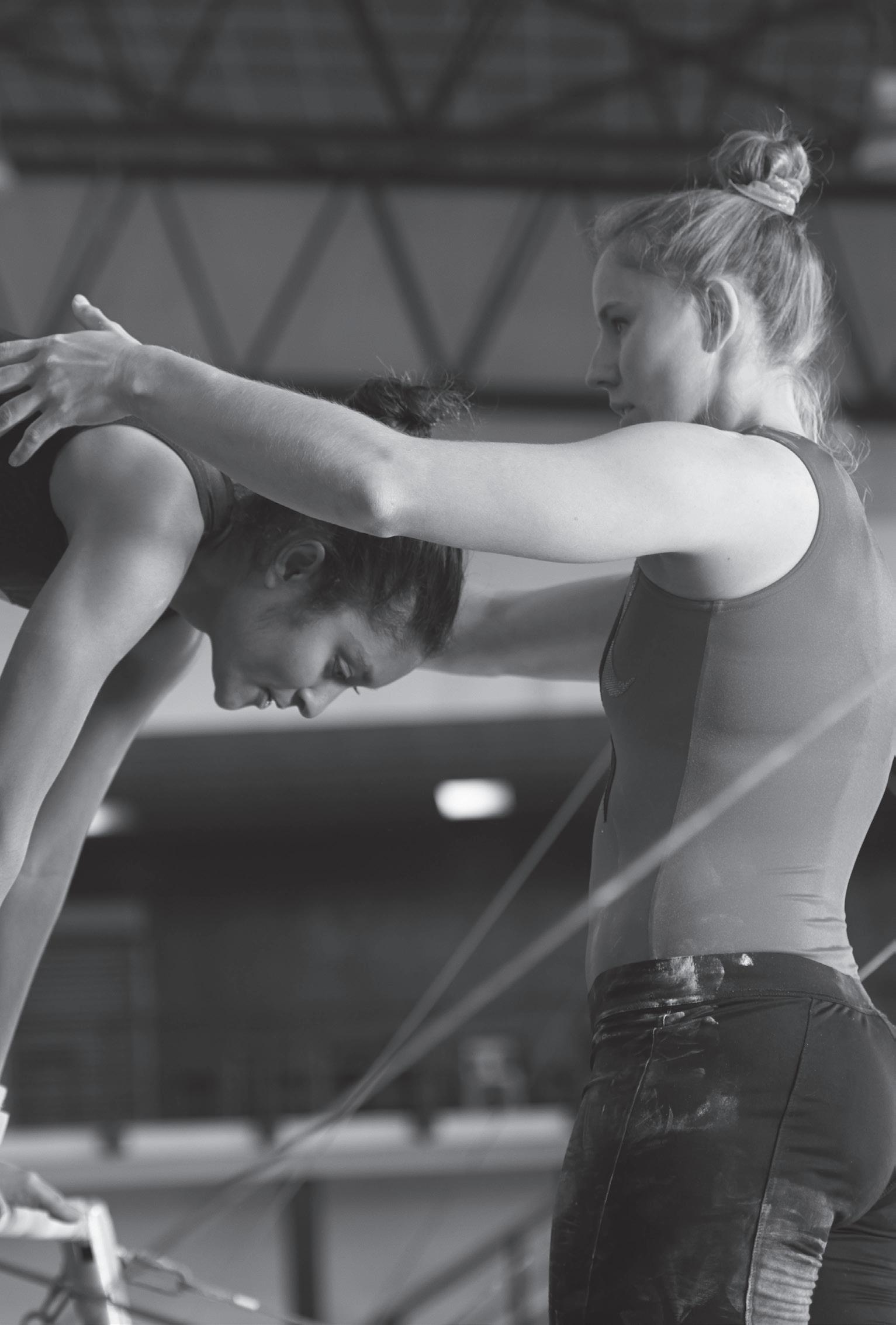
We will ensure that relevant development is mandatory to create a safe environment for all gymnasts, and that coaches are educated about the relevance of societal changes on coaching and about developments in practice, standards and sports science and sports medicine. We will collaborate with external partners to ensure we provide the most up to date courses, development opportunities and learning methods.
• A gymnast – coach led environment where both feel empowered to create safe, positive and fair experiences at every level
• A proactive organisation at the forefront of coach development across the entire sport
• Coaches supported with continuous learning based on their individual needs
• A cohesive, end to end education pathway in all disciplines

• Increased capacity, with more coaches, clubs and delivery partners, providing increased opportunities to take part and progress
• Highly skilled coaches being developed through a mix of mandatory and voluntary upskilling
• Clear and detailed education about what constitutes acceptable and unacceptable coaching behaviour and about the boundaries between appropriate discipline and abuse
• A cultural understanding that creating a fear of coaches has no place in gymnastics, with this addressed honestly in educational materials
The Education and Workforce Director to work with the Coach Advisory Group to develop a new long-term strategy for education, appropriate to the challenges of gymnastics at all levels and for all disciplines, ensuring it meets the needs of all involved in delivering a positive and safe gymnastic experience with an appropriate focus on how to coach as well as what to coach.
Listen and work with the coaches, external partners and specialists to ensure we reflect the needs of a modern coaching approach by reviewing and adjusting the coach educational framework, to include athlete development, health & wellbeing and sports psychology.
Support coaches with their commitment to constant learning by introducing a suite of Continuous Professional Development modules that meet individual needs and appropriate to every level of learning across the disciplines.
Ensure that all Performance coaches remain up to date with current best practice by working with coaches, CIMSPA and other sport NGB’s to develop an appropriate approach to coach licensing.
Inform and shape our approach in what is a vital area of change for gymnastics by establishing a steering group to undertake research partnerships, with the group to include UK Coaching, UK Sport and academic experts.
Work with a variety of specialists in safe sport to develop new resources for safeguarding and delivering courses to upskill the community and support these being embedded.
Modernise our learning management system and ultimately launch the ‘coach zone platform’ giving coaches access to technical learning.
Recommendation 10
Recommendation 10
Recommendation 13
Recommendation 13
Recommendation 13
Recommendation 13
Recommendation 13
Overhaul our International Coach Accreditation Process to ensure cultural as well as technical alignment. Recommendation 10
KEY
Phase 1: July – December 2022
Phase 2: January – June 2023
Phase 3: July – December 2023
Phase 4: January – June 2024
Involving & Developing Action implementation Action completed
We will work across our Performance Pathway environments to support every gymnast to have a positive experience at every level and develop an understanding that success rests on a demonstration of excellence across all aspects of a World Class Programme, not solely on medal hauls. We will support the gymnastics community to foster a culture centred on values, a people first focus, strong relationships, and cross-discipline learning – where there is a recognition that striving for and achieving success is not the same thing as wellbeing.
Athlete welfare reforms will be central to developing a positive and open culture and the encouragement of athlete autonomy. Modern coaching processes will be developed, and we will adopt a more handson approach to disseminating good coaching practice. We will shift from a coach led environment to a gymnast – coach led environment, ensuring both gymnasts and coaches have a voice. Gymnasts will be involved and have a meaningful say in decisions about their development, collaborating with experts in every aspect of training, recovery, wellbeing and rehabilitation, as part of a united team.
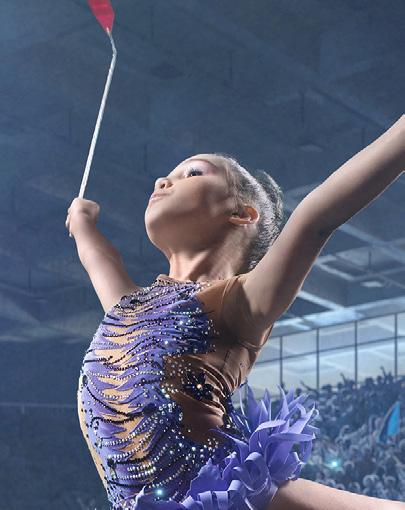
We will continue our work with external experts in developing safe sport policies that are relevant to everyone who is involved in the gymnast’s experience either in clubs, regional or national centres. These will be effectively communicated, monitored and supported.
• A more open and transparent culture focused on values with safety prioritised and the integration of performance and wellbeing
• Increased contact and oversight of Performance clubs and their culture, supporting them to implement best practice and make improvements where required
• The gymnast’s voice central to the decisions that shape their competitive journey

• Coaches confident in how they improve performance with their gymnasts, supporting wellbeing and personal growth
• Clubs and parents clear about the part they can play in the competitive pathway
• Sports science embedded across all disciplines and continually evolving
• A focus on performing well, not just winning
Drive the cultural and welfare reforms required within performance environments by appointing a second Performance Director with specific focus on Culture, Strategy and Athlete reform and a remit to connect this work across the organisation.
To work with the gymnasts, coaches and support staff to develop expected standards across all disciplines and environments by defining and embedding a framework for High-Performance Cultural and Athlete reforms.
To work with the performance coaches to support and develop a Coach Reform Programme, to aid the development of the next generation of performance coaches.
To enhance greater cross-discipline learning and the development of positive training environments by appointing a Performance Technical Advisor.
Produce and deliver a digital Gymnast Handbook for all gymnasts and parents that clearly sets out information including our Standards of Conduct, an explanation of and links to key policies, and information on safeguarding and how and where to report concerns.
Ensure leadership and strategic direction for the non-Lottery funded disciplines of gymnastics and to ensure welfare is paramount in the development of these disciplines by appointing a Head of Non-Olympic Disciplines, with the objective of creating a more consistent experience across the pathway.
Ensure the risk and challenges associated with Women’s Artistic Gymnastics are given the appropriate focus by establishing a WAG reform programme. This will include coach succession and development, application of sports science methodology and creating an open and transparent culture.
As part of the wider review of policies, work with relevant experts to review and rewrite all the Sports Science and Sports Medicine related sections, ensuring they provide clear expectations and guidance to all clubs, coaches and support teams who impact on the gymnast experience and clearly set out what conduct is and is not acceptable.
Establish, together with the English Institute of Sport, a research group to capture and develop policies and practices that put the gymnast’s health and safety central to our thinking (including looking at training loads and competition age limits).
Develop the Gymnast Representative Group so that it becomes skilled, autonomous, and effective, enabling quality consultation, communication, decision-making and reporting to its gymnast constituency and the British Gymnastics Board.
Recommendation 3
Recommendation 3
Recommendation 11
Recommendation 11
Recommendation 3
Recommendation 4
Recommendation 11
Recommendation 11
Recommendation 11
Recommendation 17
Since the commencement of the Whyte Review, and having read the report and listened to the gymnastics community, we have already implemented some key actions that will contribute to the reform that gymnastics needs, including:
• New leadership for the organisation, including the appointment of Sarah Powell as Chief Executive, and former Commonwealth Games gymnast Andy Tombs as Executive Director – Sport
• Increased our focus on welfare and safeguarding, changing our previous Integrity team with the introduction of a Safe Sport and Welfare focus, including the recruitment of a new Director for this area
• Creation and recruitment of full time National Welfare Officer posts to provide support to the community and ensure we look beyond simply the process of safeguarding
• An expanded and highly qualified safeguarding team, who collectively have extensive and relevant expertise and experience within the police and sport
• Reshaped our Performance team with the recruitment of two new Performance Directors - key appointments that form part of our wider reform plans to put gymnasts at the heart of everything we do, and put more of a focus on disciplines working together
• Addition of a gymnast representative to the British Gymnastics Board through the appointment of Danusia Francis-Reid, together with the appointment of Joanna Madyarchyk as Independent Non-Executive Director and Board lead for Welfare and Safeguarding
• Establishment of new Gymnast, Coach and Club Representative and Advisory Groups, all of which are now in place and have held their first meetings
• Hosting a Safe Sport Symposium, bringing the global gymnastics community together at the World Championships in Liverpool
As we move forward, to know if our reforms are truly working, we will need to put much greater emphasis and time into engaging, listening and working with gymnasts, parents, coaches and club personnel to build relationships and ultimately trust across the communities we serve. We will seek to collect personal stories to inform our insight and future actions.
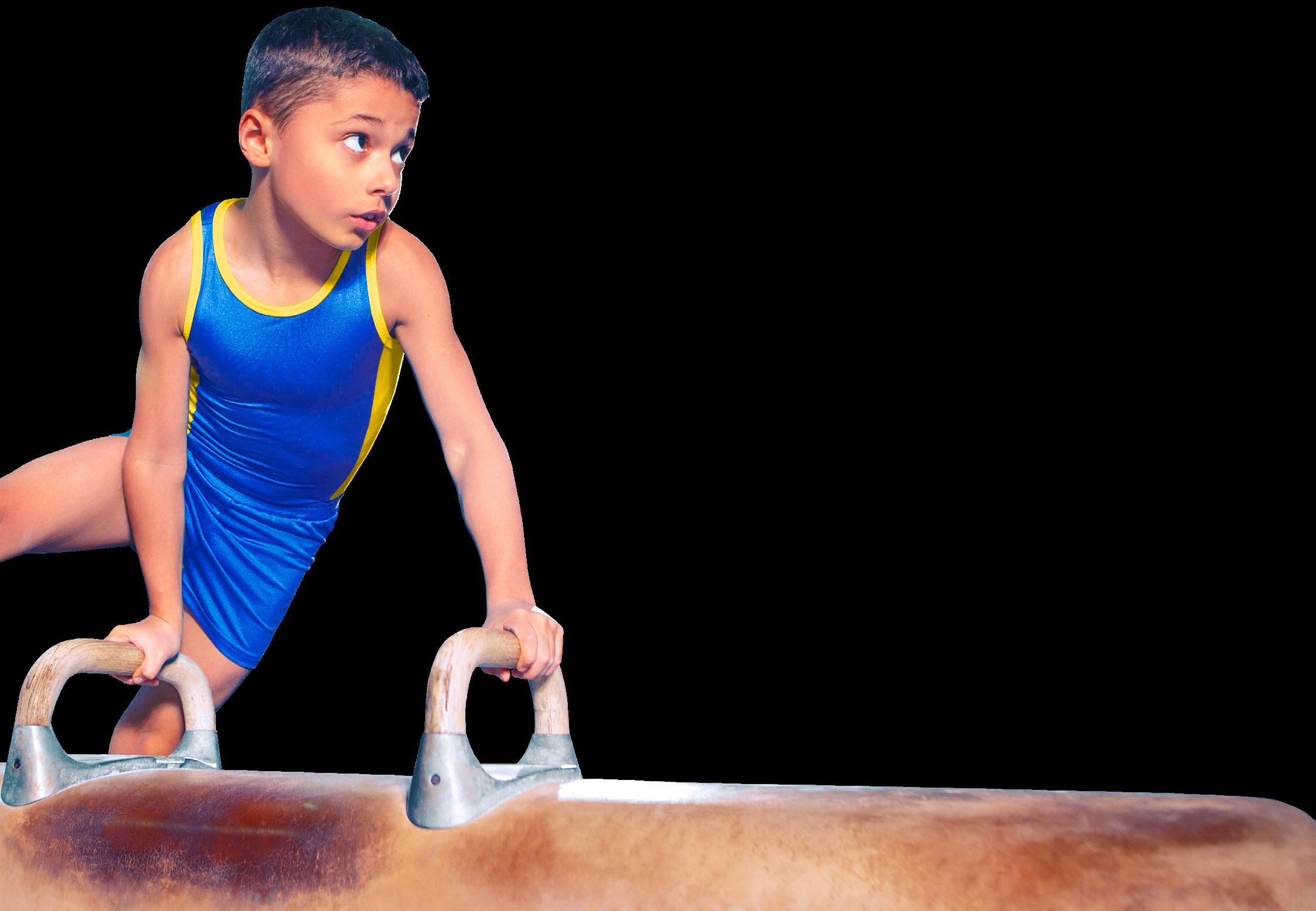
We will be seeking to combine qualitative and quantitative data to comprehensively evaluate our progress towards the desired outcomes and the impacts of the work we undertake. We will also commission an independent audit of the delivery of this plan.
There is an existing body of regular, quantitative surveys, and reports, and the focus will be on refining and supplementing these with more agile feedback loops, and then using these sources to identify the need for deeper qualitative work. As part of this we will keep under review and find alternative ways of defining and measuring culture and of ensuring that athlete welfare is being safeguarded.
The insight we gain will be used to evaluate our impact, inform action and be shared with consent to ensure we are open and transparent in our reporting on progress.
Get a sense of how clubs and leisure centres rate the support and services provided by British Gymnastics
Provides a sense of how different cohorts feel about their involvement in gymnastics
Customer Satisfaction Survey Every two years
Delivery partners - clubs, leisure centres Clubs’ perspective on the issues and challenges that they need support with, and how well they rate British Gymnastics current service provision.
Culture Survey Annual Gymnasts, parents, coaches, judges, club officials, welfare officers
What are the drivers that have the greatest effect on experience, broken down by cohort (for example high performance gymnasts vs. recreational level gymnasts)
Data gathering exercise to establish context and inform resolution decision making
Safeguarding in Club survey Triggered in response to safeguarding concern within a club
Parents, children, coaches and club officials associated with club where safeguarding concern is raised
How are staff feeling about their working experience, including culture?
Employee Engagement Survey Every two years
All staff of British Gymnastics
Where specific policies and procedures may have fallen down within a club, leading to targeted remediation. Also allows patterns, trends, and wider issues to be identified.
Staff perspective on whether “the way things are done” at British Gymnastics aligns with the desired culture.
Individual narratives around experiences Individual interviews Twice a year review Performance gymnasts
Feedback on club experiences and culture Spot visits Ongoing Club members
Gymnast narratives on their personal experiences – free text or conversation – stated in the gymnast voice.
Understanding the experiences of gymnasts, parents, coaches, club owners, welfare officers.
Feedback on the experiences and culture in clubs Pulse Survey Monthly Gymnasts / Parents / Club Officials / Coaches
More agile sense of how different cohorts are feeling, with a view to assessing efficacy of interventions, and identification of new aspects to explore more deeply.
Gain feedback on complaints handling process
Complaint / Allegation Handling Agreed number per complaint / allegation Initiator, respondent, those directly involved
To drive continuous improvement of process through identification of reoccurring dissatisfaction drivers.
Since the publication of the Whyte Review, we have communicated our initial response and shared this with the gymnastics community. We have a dedicated page on our website where all updates and progress can be found, and in addition all future major updates will also be shared with members and partners via our email communications channels.
www.british-gymnastics.org/reform-25
We will explain our reforms and implementation plans, as well as how everyone in the gymnastics community can help shape and support the reforms. We will also engage with gymnasts, parents, coaches, clubs and wider members and provide the platform for people to tell their stories.
Moving forward, we want to have more conversations and dialogue, so will be looking at new ways to drive engagement and help adoption of the changes we want to see and need for the sport. As part of this, we will be working hard to ensure we keep the gymnastics community informed and updated with the information they need to deliver and grow the sport in a safe, positive and fair way. We will ensure we get the right information to the right people, when they need it and in the way that is right for them, including personalising communications and reviewing the effectiveness of our website to help achieve this.
The key focus for this will be collaboration and feedback across the sport. We will work closely with the Coach, Gymnast and Club Representative and Advisory Groups to try and improve our communications approach. This will also help us both check the effectiveness of what we are doing and the impact we are having.
This plan is a living document that is the beginning of an important journey for our sport. We will regularly engage with our members, partners and people connected with gymnastics to hear their ideas and help us work out the detail of these programmes of work, ensuring we make a real, positive difference together.
If anyone has any questions or suggestions about this plan or would like to be involved further, then please do contact our CEO Sarah Powell directly, on ceo@british-gymnastics.org.
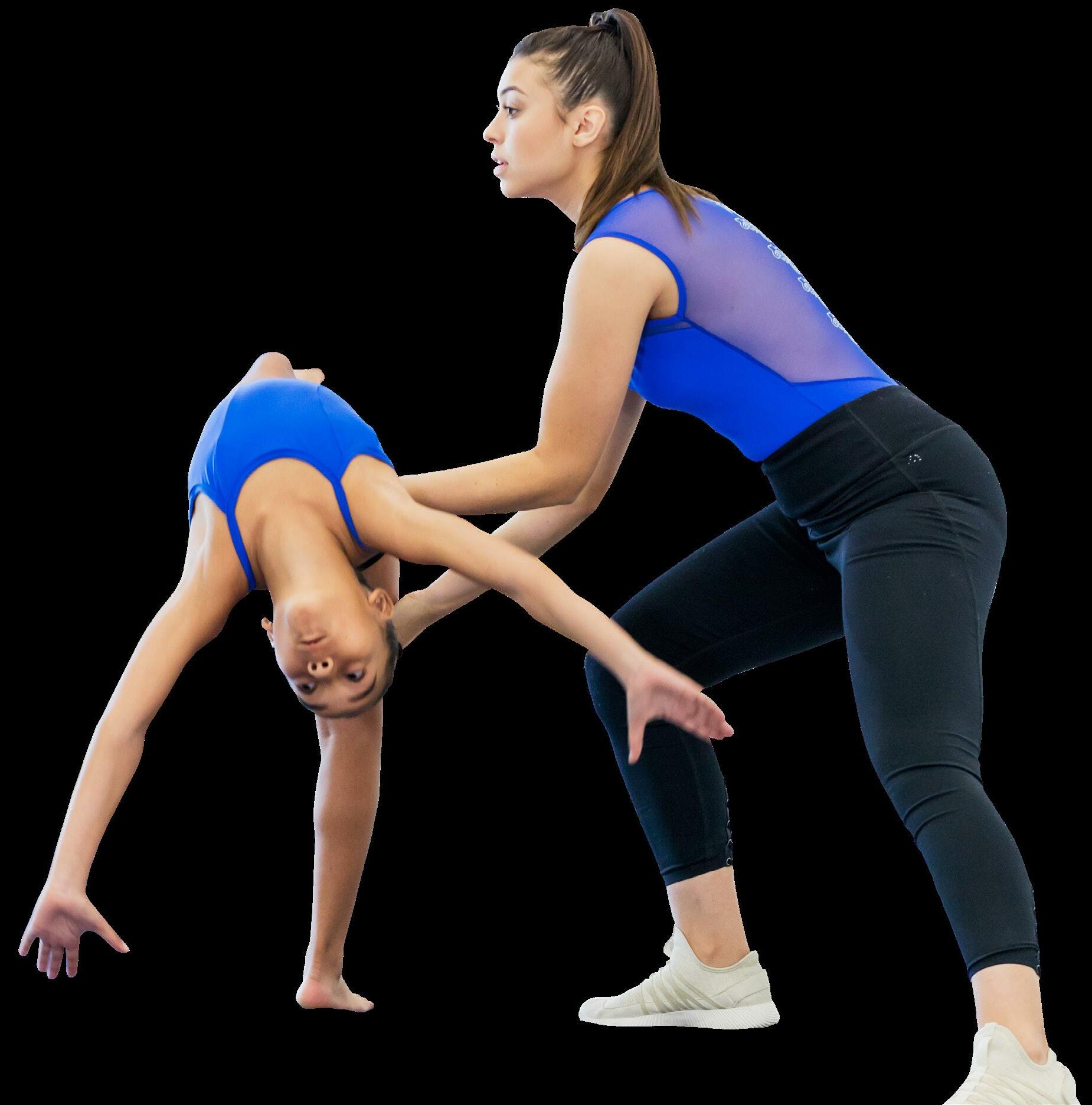
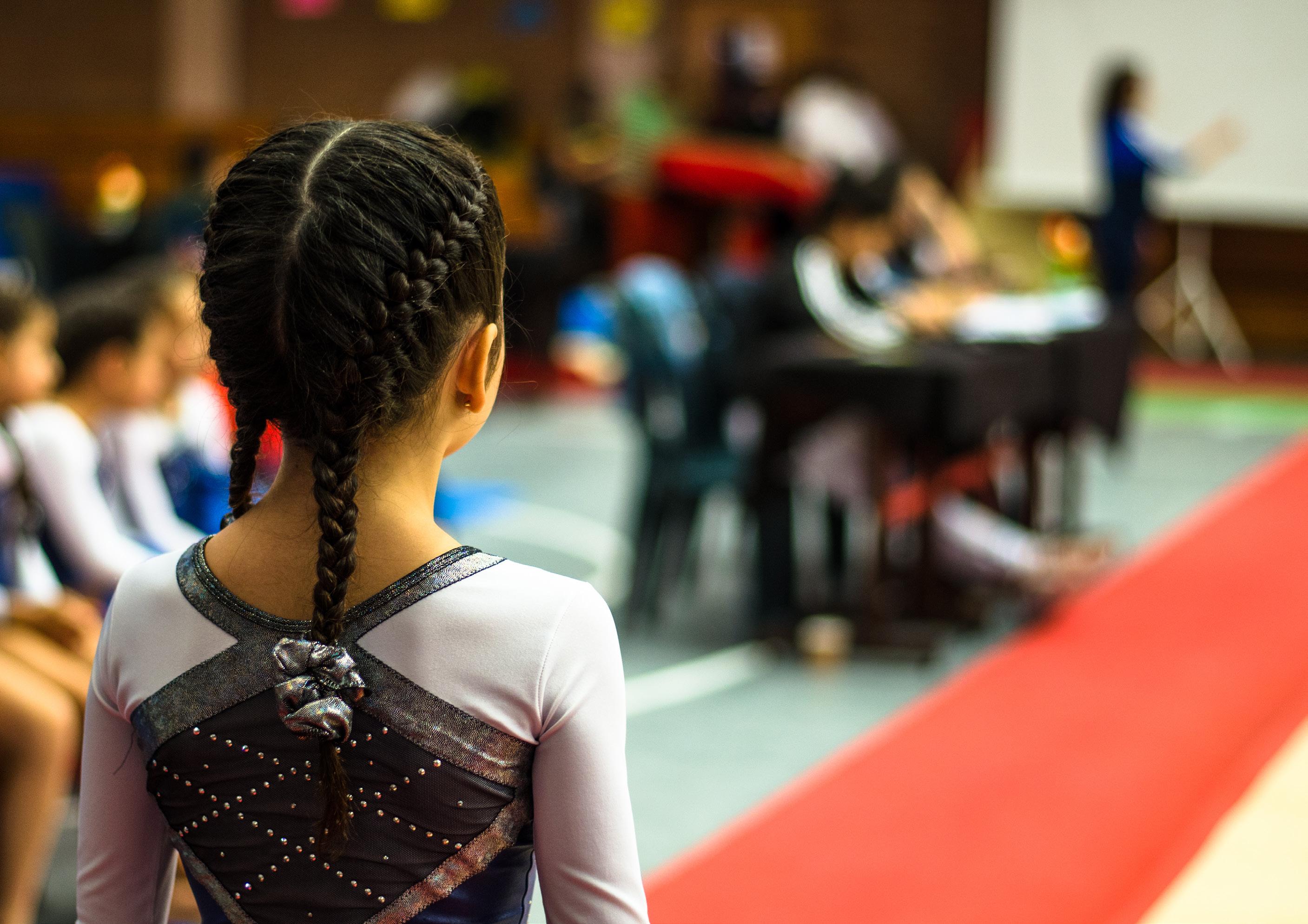
British Gymnastics must:
1.Reassess the level of responsibility delegated to volunteers in the sport and must employ sufficient staff, especially at regional level, with appropriate professional expertise and training to support the safeguarding of gymnasts.
Revise and update its mandatory safeguarding courses to be more relevant to the sport of gymnastics and, for coaches, to the seniority of coach. In doing so it must consider the gaps and weaknesses that I have identified in this report. British Gymnastics must introduce mandatory safeguarding training for all club owners and managers.
Revise and improve welfare provision for high performance gymnasts, and their parents, including:
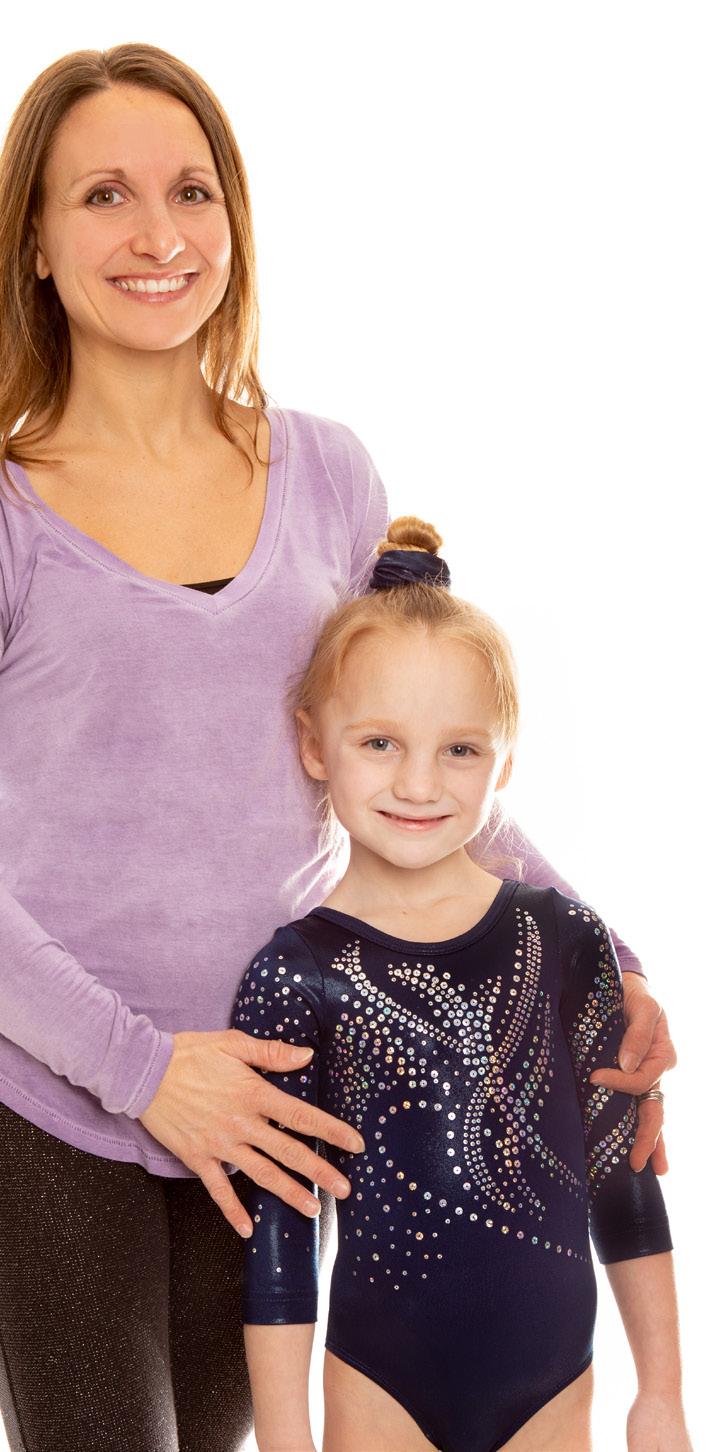
• a more thorough induction process;
• access to an independent disclosure service; and
• access to a dedicated Welfare Officer from outside a gymnast’s club.
Review the types and level of support provided to non-Olympic disciplines and ensure these are improved in light of the findings of this report.
British Gymnastics must:
Ensure its case management system for complaints is fit for purpose and enables a record to be kept of the nature and number of complaints received in order that complaint handling performance can be (and is) monitored and patterns of behaviour identified.
Provide better guidance in its internal policies about how to investigate complaints and concerns, including specific guidance for when a complaint is brought against a coach employed by British Gymnastics. In doing this British Gymnastics must remedy the gaps and weaknesses in this area specifically identified in this report.
Require its clubs to have a complaints policy for safeguarding concerns (and make this a clear requirement within the relevant policies and standards for clubs), operate a system for the neutral reporting of low-level concerns about adult conduct towards children and vulnerable adults and make clear to clubs the circumstances in which they are required to report concerns to British Gymnastics.
Ensure that all welfare related complaints about its employed coaches are independently investigated and, where relevant, determined by a wholly independent panel.
Ensure that it notifies complainants and respondents involved in a complaint about actions, developments and outcomes in a consistent and prompt manner.
British Gymnastics must:
Appoint a Director of Education with overall responsibility for the education and training of coaches and Welfare Officers and for ensuring that education is adequately co-ordinated with British Gymnastics Standards of Conduct and policy.
Review the policies it currently has in place that affect gymnast welfare and update them to remedy the issues identified in this report. These policies should include clear guidance to the gymnastics community about what conduct is and is not acceptable in the sport.
Produce and make available to the gymnastics community a Gymnast Handbook which should be reviewed and updated at least every four years and must include:
• British Gymnastics Standards of Conduct;
• An explanation of all British Gymnastics key policies affecting gymnast welfare and links to these policies (as updated under Recommendation 11);
• Information about the role of Welfare Officers and obligations to report, and pathways for reporting, safeguarding concerns; and
• Any other information that British Gymnastics considers it is important for the gymnastics community to be aware of, in light of my report.
Revise and update its educational programme for coaches and Welfare Officers to address the gaps and weaknesses that are identified in this report. In order to ensure that experienced coaches who are already qualified benefit from these updates, British Gymnastics must ensure that all coaches currently holding a qualification of level 4 or above undertake training based upon the updated educational programme within two years of its introduction.
Increase its direct contact with registered clubs to promote and monitor compliance with the information set out in the Gymnasts Handbook and provide policy updates.
